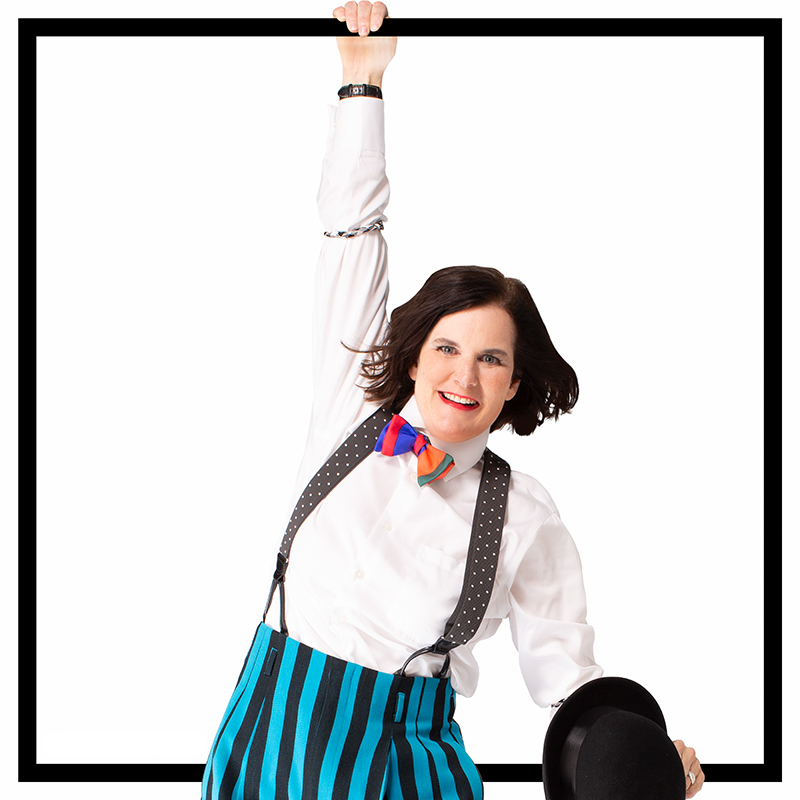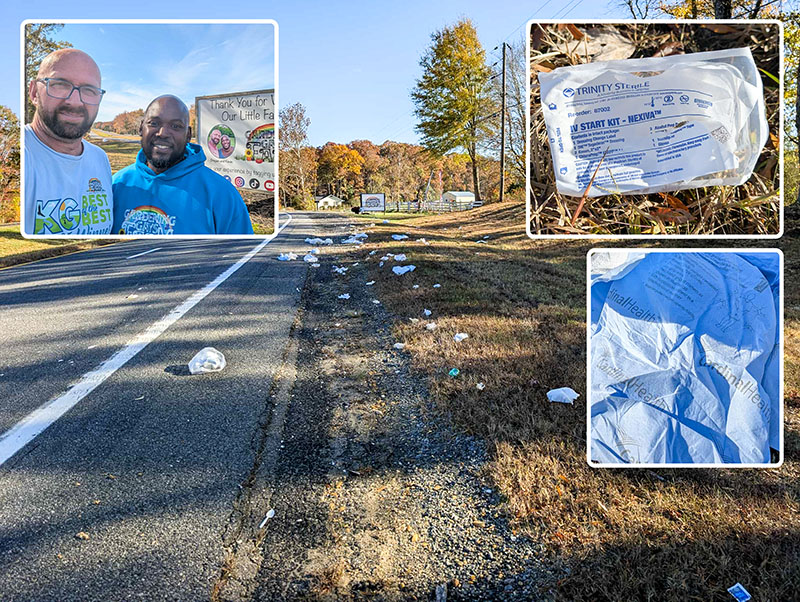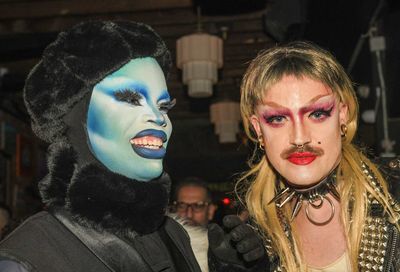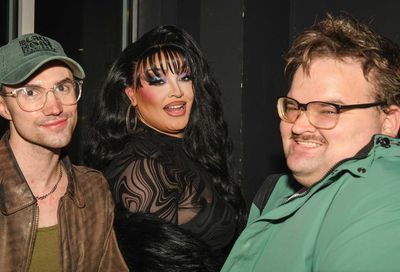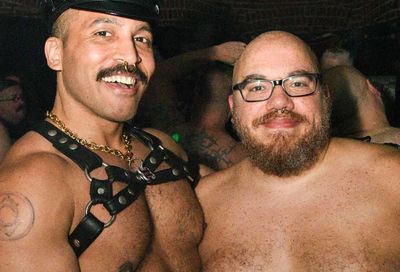A Dominion Decision
Virginians face a harsh anti-gay amendment and a bitterly negative Senate campaign
While D.C.’s election stories may have burned brightest back in September, the states that surround the nation’s capital have taken up the torch for closely watched and nationally relevant election stories.
In particular, Virginia has found itself on the front pages of papers and the first minutes of newscasts across the nation with a nasty U.S. Senate campaign, where incumbent Republican George Allen fumbled a 16-point lead, ending up in a dead-heat dash to the finish line against Democratic challenger Jim Webb.
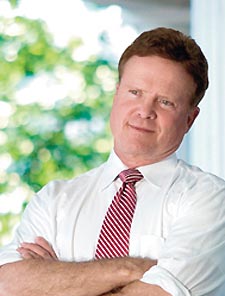 Webb |
But while that race and others carry significant implications for Virginia’s GLBT citizens, another vote on Tuesday will have a far more direct and immediate impact. Ballot question No. 1 is a proposed amendment to the state constitution that, according to its proponents, would protect Virginia from having to recognize same-sex marriages through judicial fiat.
While Virginia has explicitly banned gay marriage since the 1970s, and has a judiciary appointed and approved by the legislature, advocates for the amendment contend that legal recognition for gay couples is imminent and must be legally blocked.
With likely more than half of states having a constitutional ban on same-sex marriage as of next Tuesday — 19 currently have them, and seven are up for votes this year — some gays and lesbians may assume that such bans are, in the current political climate, inevitable. The problem with Virginia’s amendment language is that, like one that passed in 2004 in Ohio, it goes well beyond issues of marriage, banning any legal recognition of unmarried couples including domestic partnerships and civil unions.
That extended language has been the base of operation for the Commonwealth Coalition, the lead organization in the fight against the amendment. When a Washington Post poll showed that opposition to the amendment increased among those who read the entire amendment language, the Coalition’s campaign manager, Claire Guthrie-Gastañaga, was not completely surprised.
”An informed voter is a no voter,” she says, summing up the Coalition’s approach. It’s not an ineffective one, particularly in the urban enclaves of Northern Virginia, where 55 percent oppose the amendment. Unfortunately, the rest of the state shows stronger support for it, leaving the entire commonwealth with 53 percent support for the amendment.
Making things more difficult in the final days of the election cycle was last week’s New Jersey Supreme Court ruling that the state must offer equal rights to couples, directing the legislature to construct a remedy, whether it goes by the name ”marriage” or something different.
While the New Jersey court stopped short of directly legalizing same-sex marriage, the decision electrified many anti-gay-marriage activists, who saw in the Garden State the perfect example of what they hoped to stop in Virginia.
”The other side views it as a remarkable gift,” says Guthrie-Gastañaga. ”I don’t know if those assumptions are well-placed.”
 Allen |
While she agrees that the New Jersey decision gives at least surface credibility to the arguments of amendment supporters — ”it gives them a reason to argue” — she says that given New Jersey’s history of being on the forefront of gay and lesbian civil rights, it’s highly unlikely the decision will have an effect on the far more conservative Virginia judiciary.
”What happens in New Jersey, stays in New Jersey,” she says, in the same way that ”the D.C. gun ban hasn’t leapt the Potomac.”
She’s also doubtful that the latest wrinkle will provide the amendment supporters with a ”turnout tool” in the final stretch of the election.
”I think they may be provoking our people more than exciting their own.”
Amendment supporters have dismissed the Coalition’s arguments about the overreaching and unintended effects of the amendment. Yet the Ohio court system is still determining whether that state’s amendment now means that domestic-violence laws no longer apply to unmarried partners.
Should the amendment pass, Guthrie-Gastañaga expects the repercussions to happen quickly, from lawsuits seeking to end domestic partnership benefits at state universities to the introduction of another constitutional amendment banning adoption by gays and lesbians.
”It’s scary, but the reality is, do you think they’re going to stop here?” she says.
While remaining optimistic, Guthrie-Gastañaga says that one of the biggest challenges has been ”convincing people they could win.” The Coalition has raised over $1 million from 2,229 individuals and organizations, not an insignificant amount, but not close to what she calls the ”dream budget” — the $3 million her team had hoped to raise.
Also on the horizon with the final days of an increasingly harsh campaign is the final push by the increasingly beleaguered Allen, who has already begun equating Webb’s opposition to the amendment as support for ”gay marriage.” Allen’s campaign has also attacked fictional scenes from a number of Webb’s critically-acclaimed novels for alleged pedophilia.

|
”I don’t think we’ve seen the worst of it,” says Guthrie-Gastañaga, who noted she couldn’t comment on the Senate race outside of either candidate’s support or opposition to the amendment. ”[The Allen campaign] is running some stuff on the radio now down south that’s pretty aggressively fear-mongering.”
A Pollster.com average of the five most recent polls on the race as of Nov. 1 put the candidates in a statistical dead heat, with Webb at 47.6 percent to Allen’s 46.4 percent.
Other congressional races haven’t sported the same level of excitement. In Arlington, Rep. Jim Moran (D) has avoided the controversy that plagued his last congressional campaign to build a comfortable lead. Northern Virginia Republicans such as Rep. Tom Davis and Rep. Frank Wolf appear on track for similarly easy victories.
But between the amendment and Senate battles, there are plenty of reasons for gay Virginians to make their way to the polls.
”Every vote counts,” says Guthrie-Gastañaga, who urges gays and lesbians to talk to their friends, family and co-workers about the importance of voting against the amendment. ”Every one of those conversations is going to be invaluable.”
For more information on the Commonwealth Coalition visit www.votenova.org.
Support Metro Weekly’s Journalism
These are challenging times for news organizations. And yet it’s crucial we stay active and provide vital resources and information to both our local readers and the world. So won’t you please take a moment and consider supporting Metro Weekly with a membership? For as little as $5 a month, you can help ensure Metro Weekly magazine and MetroWeekly.com remain free, viable resources as we provide the best, most diverse, culturally-resonant LGBTQ coverage in both the D.C. region and around the world. Memberships come with exclusive perks and discounts, your own personal digital delivery of each week’s magazine (and an archive), access to our Member's Lounge when it launches this fall, and exclusive members-only items like Metro Weekly Membership Mugs and Tote Bags! Check out all our membership levels here and please join us today!








